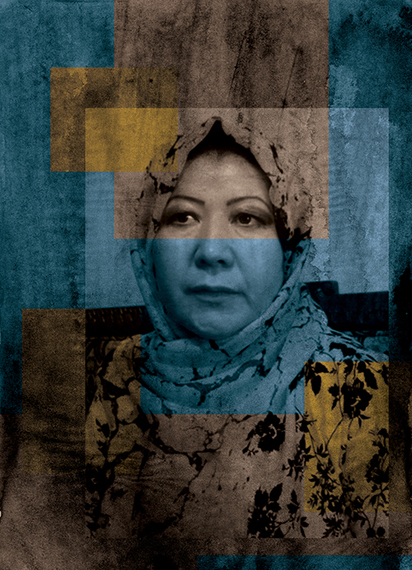Momina Yari is a member of the Loya Jirga Commission for the US-Afghanistan Agreement and has also worked as a member of the Independent Elections Commission for the past seven years.
Can you share with us some memories of times when your rights have been violated?
The main thing that comes to my mind for me is that we were forced to migrate to Pakistan because of the war, like millions of our fellow compatriots. The communists came to arrest my father. We were extremely lucky, because he was not home when they came. The next day, we fled to Pakistan.
What are the important achievements of today's Afghanistan?
I am pleased at the increasing role women are playing in society. We have female Members of Parliament, and nearly 8 million female students. In some educational institutions, women make up 50 percent of the student population. We have never had so many female students.
Freedom of the press and freedom of speech as well as women's participation in social, cultural and political affairs are other positive developments. I should also mention the Law for the Elimination of Violence Against Women, which will hopefully be passed by the Parliament soon.
Which developments give you hope for the future?
Elections are a totally new phenomenon in Afghanistan: We have never had them before. Participation of all the people in electing their own representatives, beginning at the level of the village councils, up to the provincial councils, the Parliament and the election of the president, is a very new phenomenon in this country.
What do you fear most today?
I am most worried about the lack of security. Many problems flow from lack of security: It challenges the electoral process, gives power to the bullies and extortionists, and in turn, that gives rise to instability.
What are the biggest challenges facing Afghanistan?
If I think about the future, the challenges ahead could include the lack of security, the existence of bullies, the government's lack of power and management capability to attract specialists and to establish efficient institutions, widespread administrative corruption, reprehensible customs and traditions, and unemployment amongst the young, educated population.
Is it possible that girls could once again be banned from schools and women excluded from social participation, as was the case under the Taliban?
I don't even want to think about this. The society would never allow it. We all have to do everything we can to protect the relative stability we enjoy. In particular, the media has a responsibility to think carefully about Afghanistan's interests and guide the society in the direction of progress.
Have the rights of any of your female family members ever been violated?
Regardless of whether they are educated, actively employed or housewives, women have a tendency to resign themselves to the demands of the men in their households, even when they know they are right. This means that it is always the interests of men that prevail. Women do not stand up for their rights, and this in itself is a kind of human rights violation.
Which factors deter women from participating in social, economic, political and cultural spheres?
Reprehensible customs and habits, the low level of education, the existence of patriarchy in the family, and the absence of the rule of law in the country. Building awareness about the Civil Code, the Penal Code, and article 22 of the Constitution guaranteeing equality for men and women can open the way to address these problems.
What are the major demands of women?
Women demand the approval of the Law for the Elimination of Violence against Women by the Parliament. They want family courts to function and protect their rights and, above all, to see the existing laws implemented and enforced.
Which sources and centers can be relied upon to promote women's rights and demands?
A civil society that adheres to Islamic, social and national values of Afghanistan, and the Afghanistan Independent Human Rights Commission. If these two institutions work together, they will create a reliable source for the defense of women's rights.
What do you wish for your daughter?
I hope that my daughter and all the girls of this land will be educated so that they can live comfortably and be proud of their nation.
What have you done in your personal and professional life to fight against discrimination?
I undertook a series of advocacy meetings first in the Ministry of Women's Affairs and later in the Afghanistan Independent Human Rights Commission, in collaboration with the international institutions, to set up gender divisions. With the help of the Human Rights Complaints Commission, I have tried to report women's problems to the responsible authorities in all areas of society, for example, with respect to family disputes, or women in prison.
Any final words?
I hope that one day all our sisters will live freely and decide freely to serve the people and their society. I hope to see this spirit alive in all women of Afghanistan.
"Unveiling Afghanistan, the Unheard Voices of Progress" is a campaign by Armanshahr/OPEN ASIA and FIDH, which explores views held by Afghan civil society actors. Influential social, political and cultural actors hope to spark conversation and debate about building a society that is inclusive of women's and human rights in Afghanistan.
You can read original interviews in Dari on Armanshahr/OPEN ASIA

